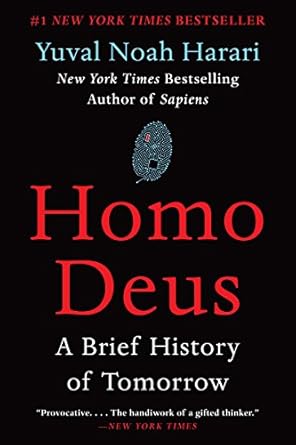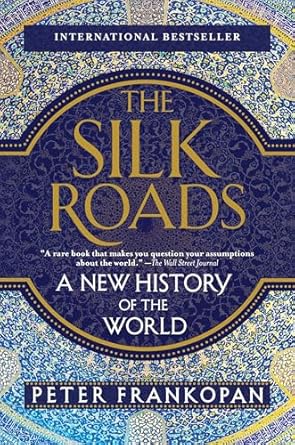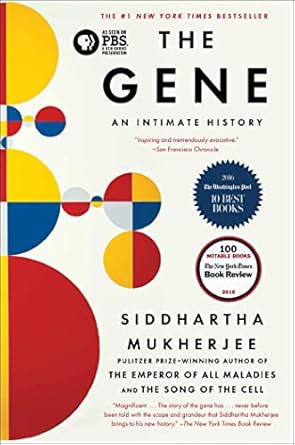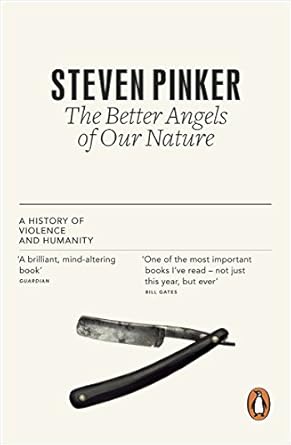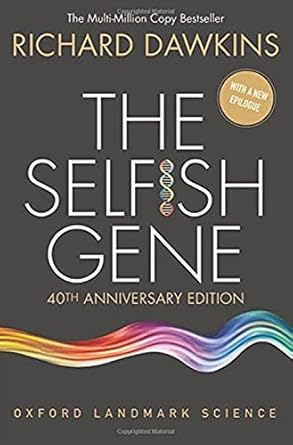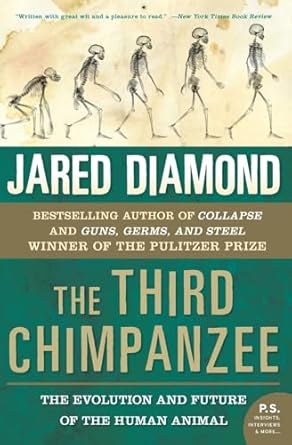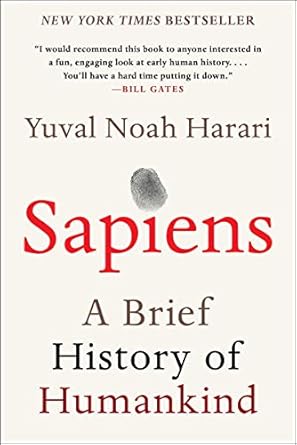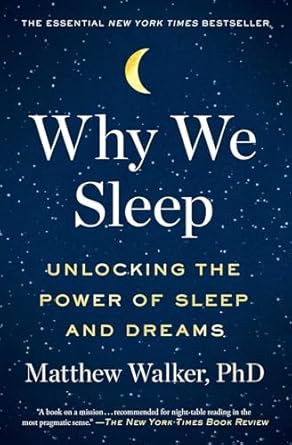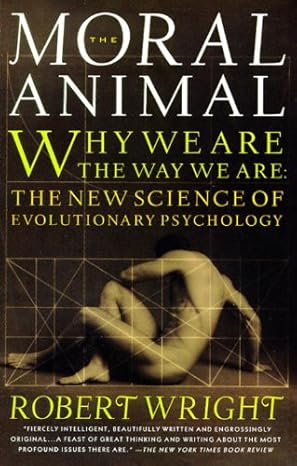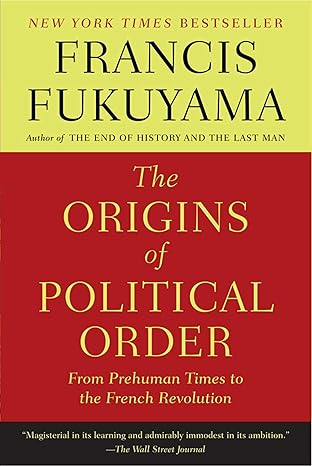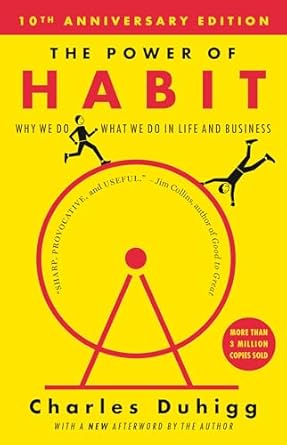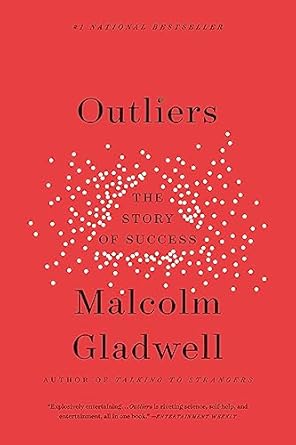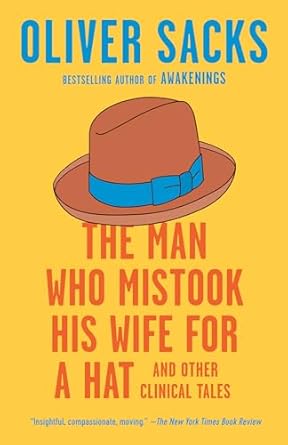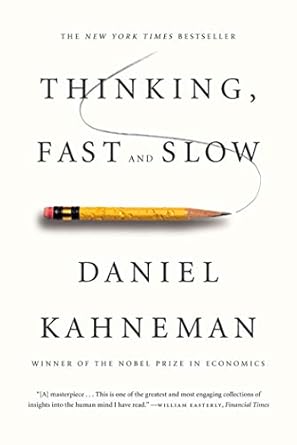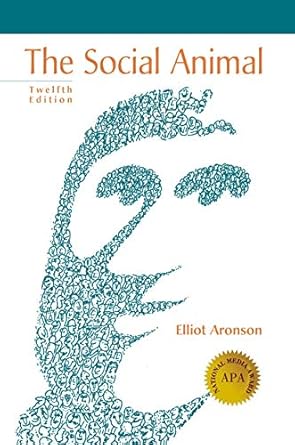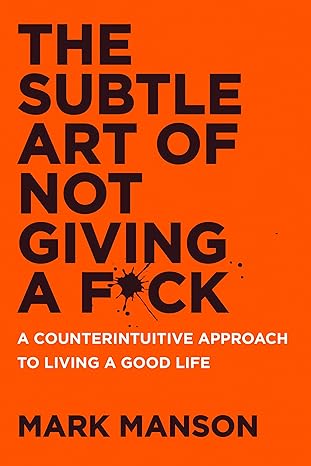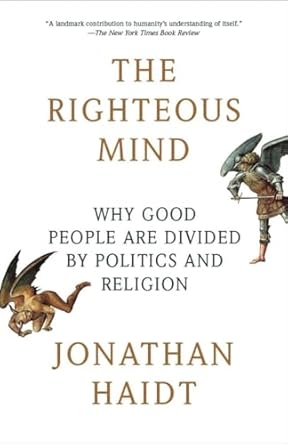Summary: In this article, I have compiled 20 books similar to Sapiens that explore the evolution of humanity, offering fresh perspectives on history, culture, and society. Here are my top 3 picks:
- Homo Deus: A Brief History of Tomorrow by Yuval Noah Harari
- Guns, Germs, and Steel: The Fates of Human Societies by Jared Diamond
- The Silk Roads: A New History of the World by Peter Frankopan
Books similar to Sapiens offer fascinating insights into human evolution, showing how our past shapes who we are today and where we’re headed. They cover everything from history and anthropology to psychology and sociology, helping you understand the forces behind our development. Reading these books broadens your view of human nature, challenges assumptions, and sparks new ways of thinking. If you loved Sapiens, these books will deepen your understanding of the complexity of human life and are perfect for anyone curious about our shared story.
TOP 20: Best Books Similar to Sapiens
- Homo Deus: A Brief History of Tomorrow by Yuval Noah Harari
- Guns, Germs, and Steel: The Fates of Human Societies by Jared Diamond
- The Silk Roads: A New History of the World by Peter Frankopan
- The Gene: An Intimate History by Siddhartha Mukherjee
- The Better Angels of Our Nature: Why Violence Has Declined by Steven Pinker
- The Selfish Gene by Richard Dawkins
- The Third Chimpanzee: The Evolution and Future of the Human Animal by Jared Diamond
- Sapiens: A Brief History of Humankind by Yuval Noah Harari
- Why We Sleep: Unlocking the Power of Sleep and Dreams by Matthew Walker
- The Moral Animal: Why We Are the Way We Are by Robert Wright
- The Origins of Political Order: From Prehuman Times to the French Revolution by Francis Fukuyama
- The Power of Habit: Why We Do What We Do in Life and Business by Charles Duhigg
- Outliers: The Story of Success by Malcolm Gladwell
- The Immortal Life of Henrietta Lacks by Rebecca Skloot
- The Man Who Mistook His Wife for a Hat by Oliver Sacks
- Thinking, Fast and Slow by Daniel Kahneman
- The Social Animal by Elliot Aronson
- Cosmos by Carl Sagan
- The Subtle Art of Not Giving a F*ck by Mark Manson
- The Righteous Mind: Why Good People Are Divided by Politics and Religion by Jonathan Haidt
1. Homo Deus: A Brief History of Tomorrow
- Author: Yuval Noah Harari
- About: Explores the potential directions humanity might take in the future, focusing on the pursuit of immortality, happiness, and divinity.
- Style of Writing: Analytical and thought-provoking, combining historical analysis with speculative insights.
- Length: Approximately 100,000 words.
- Year Written: 2015
- Emotional Impact: Encourages readers to reflect on the future trajectory of human evolution and ethics.
- Difficulty Level: Moderate; accessible to general readers interested in future studies and philosophy.
- Why Read It: Provides a compelling vision of possible futures, prompting deep reflection on technological and ethical advancements.
2. Guns, Germs, and Steel: The Fates of Human Societies
- Author: Jared Diamond
- About: Investigates the environmental and geographical factors that have shaped the modern world.
- Style of Writing: Interdisciplinary and comprehensive, blending history, biology, and anthropology.
- Length: Approximately 150,000 words.
- Year Written: 1997
- Emotional Impact: Broadens understanding of human development, though may challenge preconceived notions.
- Difficulty Level: Moderate to high; requires engagement with complex ideas and theories.
- Why Read It: Offers a deep analysis of the factors influencing societal development, encouraging a reevaluation of historical narratives.
3. The Silk Roads: A New History of the World
- Author: Peter Frankopan
- About: Reinterprets world history by focusing on the importance of the East and the network of trade routes known as the Silk Roads.
- Style of Writing: Engaging and narrative-driven, with a focus on connecting historical events across continents.
- Length: Approximately 130,000 words.
- Year Written: 2015
- Emotional Impact: Provides a fresh perspective on history, highlighting the interconnectedness of civilizations.
- Difficulty Level: Moderate; accessible to readers with an interest in history and cultural studies.
- Why Read It: Reveals the pivotal role of Eastern civilizations in shaping the modern world, challenging Western-centric historical views.
4. The Gene: An Intimate History
- Author: Siddhartha Mukherjee
- About: Explores the history and science of the gene, delving into its implications for identity, behavior, and disease.
- Style of Writing: Narrative and informative, combining personal stories with scientific research.
- Length: Approximately 120,000 words.
- Year Written: 2016
- Emotional Impact: Provokes contemplation on the nature of heredity and its influence on human life.
- Difficulty Level: Moderate; accessible to readers with a general interest in science and genetics.
- Why Read It: Offers a comprehensive and personal exploration of genetics, shedding light on its profound impact on humanity.
5. The Better Angels of Our Nature: Why Violence Has Declined
- Author: Steven Pinker
- About: Argues that, contrary to popular belief, violence has been in decline over long stretches of history due to various societal improvements.
- Style of Writing: Analytical and data-driven, presenting extensive research in a readable format.
- Length: Approximately 200,000 words.
- Year Written: 2011
- Emotional Impact: Provides a hopeful perspective on human progress, though some may find the data overwhelming.
- Difficulty Level: High; dense with statistics and historical analysis.
- Why Read It: Challenges pessimistic views by presenting evidence of humanity's decreasing propensity for violence.
6. The Selfish Gene
- Author: Richard Dawkins
- About: Introduces the gene-centered view of evolution, emphasizing the role of genes in shaping behavior.
- Style of Writing: Provocative and insightful, blending scientific explanation with philosophical implications.
- Length: Approximately 80,000 words.
- Year Written: 1976
- Emotional Impact: Stimulates deep reflection on human nature and our place in the evolutionary process.
- Difficulty Level: Moderate; accessible to readers with an interest in biology and evolutionary theory.
- Why Read It: Provides a foundational perspective on evolution, influencing both scientific thought and popular understanding.
7. The Third Chimpanzee: The Evolution and Future of the Human Animal
- Author: Jared Diamond
- About: Explores the evolutionary origins of human behavior, drawing parallels between humans and chimpanzees to understand our actions and societal structures.
- Style of Writing: Analytical and interdisciplinary, combining insights from biology, anthropology, and history.
- Length: Approximately 90,000 words.
- Year Written: 1991
- Emotional Impact: Encourages readers to reflect on human nature and our place in the animal kingdom, potentially altering perceptions of human exceptionalism.
- Difficulty Level: Moderate; suitable for readers interested in evolutionary biology and anthropology.
- Why Read It: Provides insights into the evolutionary roots of human behavior, challenging perceptions of human uniqueness and offering a deeper understanding of our actions.
8. Sapiens: A Brief History of Humankind
- Author: Yuval Noah Harari
- About: Surveys the history of humankind, from the Stone Age to the 21st century, focusing on Homo sapiens and our impact on the world.
- Style of Writing: Engaging and accessible, combining historical analysis with philosophical reflections.
- Length: Approximately 100,000 words.
- Year Written: 2011
- Emotional Impact: Provokes deep reflection on human history, our achievements, and shortcomings, leaving a lasting impression on readers' worldview.
- Difficulty Level: Moderate; suitable for general readers interested in history and anthropology.
- Why Read It: Offers a comprehensive overview of human history, providing insights into how Homo sapiens came to dominate the planet and the consequences of our actions.
9. Why We Sleep: Unlocking the Power of Sleep and Dreams
- Author: Matthew Walker
- About: Delves into the science of sleep, explaining its crucial role in our health, cognition, and overall well-being.
- Style of Writing: Scientific yet accessible, presenting complex research in an understandable manner.
- Length: Approximately 110,000 words.
- Year Written: 2017
- Emotional Impact: Raises awareness about the importance of sleep, potentially prompting readers to reassess their sleep habits and prioritize rest.
- Difficulty Level: Moderate; suitable for readers interested in health and neuroscience.
- Why Read It: Provides a thorough understanding of sleep's impact on health and productivity, offering practical advice for improving sleep quality.
10. The Moral Animal: Why We Are the Way We Are
- Author: Robert Wright
- About: Examines human behavior through the lens of evolutionary psychology, exploring the origins of our moral instincts and social behaviors.
- Style of Writing: Thought-provoking and analytical, blending storytelling with scientific research.
- Length: Approximately 100,000 words.
- Year Written: 1994
- Emotional Impact: Challenges readers' perceptions of morality and human nature, prompting introspection about our actions and societal norms.
- Difficulty Level: Moderate; suitable for readers interested in psychology and ethics.
- Why Read It: Offers insights into the evolutionary roots of our moral behaviors, providing a deeper understanding of why we act the way we do.
11. The Origins of Political Order: From Prehuman Times to the French Revolution
- Author: Francis Fukuyama
- About: Explores the development of political institutions from early human societies to the pre-modern era, analyzing the factors that led to the establishment of political order.
- Style of Writing: Comprehensive and scholarly, integrating history, political science, and sociology.
- Length: Approximately 150,000 words.
- Year Written: 2011
- Emotional Impact: Provides a deep understanding of political evolution, though may be dense for some readers.
- Difficulty Level: High; suitable for readers with a strong interest in political history and theory.
- Why Read It: Offers a thorough analysis of the origins and development of political systems, enhancing understanding of contemporary governance.
12. The Power of Habit: Why We Do What We Do in Life and Business
- Author: Charles Duhigg
- About: Investigates the science behind habit formation and how understanding habits can lead to personal and professional success.
- Style of Writing: Engaging and accessible, combining research with practical examples.
- Length: Approximately 90,000 words.
- Year Written: 2012
- Emotional Impact: Empowers readers to make positive changes by understanding and harnessing the power of habits.
- Difficulty Level: Moderate; suitable for a general audience interested in psychology and self-improvement.
- Why Read It: Provides actionable insights into habit formation, offering tools to transform personal and professional life.
13. Outliers: The Story of Success
- Author: Malcolm Gladwell
- About: Investigates why some people succeed far beyond average, focusing on cultural background, opportunity, and timing rather than just talent or hard work.
- Style of Writing: Conversational, anecdotal, and journalistic with accessible storytelling.
- Length: Approx. 80,000 words
- Year Written: 2008
- Emotional Impact: Thought-provoking; challenges conventional ideas of meritocracy and success.
- Difficulty Level: Easy to moderate
- Why Read It: Offers fresh perspectives on success, showing how hidden advantages and context can shape outcomes.
14. The Immortal Life of Henrietta Lacks
- Author: Rebecca Skloot
- About: Tells the true story of Henrietta Lacks, a poor Black woman whose cancer cells were taken without consent and became one of the most important tools in medicine.
- Style of Writing: Narrative nonfiction, deeply human and investigative.
- Length: Approx. 100,000 words
- Year Written: 2010
- Emotional Impact: Deeply moving and unsettling; highlights issues of medical ethics, race, and justice.
- Difficulty Level: Moderate
- Why Read It: A powerful blend of biography, science, and social critique that raises vital ethical questions.
15. The Man Who Mistook His Wife for a Hat
- Author: Oliver Sacks
- About: A collection of case studies of neurological disorders that illuminate how the brain functions—and sometimes malfunctions.
- Style of Writing: Literary, compassionate, and philosophical with medical insight.
- Length: Approx. 70,000 words
- Year Written: 1985
- Emotional Impact: Fascinating and poignant; evokes empathy and curiosity about the human mind.
- Difficulty Level: Moderate
- Why Read It: Offers a compelling look into human consciousness and the fragile, mysterious nature of the brain.
16. Thinking, Fast and Slow
- Author: Daniel Kahneman
- About: Explains the two systems of thinking—fast (intuitive) and slow (deliberative)—and how they affect our judgments and decisions.
- Style of Writing: Analytical and research-heavy, yet engaging.
- Length: Approx. 150,000 words
- Year Written: 2011
- Emotional Impact: Enlightening; changes how you think about thinking.
- Difficulty Level: High (requires focus, especially on behavioral economics concepts)
- Why Read It: A foundational work on decision-making that reveals how and why we often think irrationally.
17. The Social Animal
- Author: Elliot Aronson
- About: An introduction to social psychology through compelling stories and examples that explore conformity, prejudice, love, and persuasion.
- Style of Writing: Educational yet narrative-driven; blends storytelling with academic research.
- Length: Approx. 120,000 words
- Year Written: First published in 1972; revised editions continue
- Emotional Impact: Illuminating and insightful; helps you understand your own behavior and that of others.
- Difficulty Level: Moderate to high (especially in textbook editions)
- Why Read It: A deep dive into what drives human behavior, both individually and in groups.
18. Cosmos
- Author: Carl Sagan
- About: Explores the origins of life, the universe, and humanity’s place within it—bridging science, philosophy, and wonder.
- Style of Writing: Poetic, awe-inspiring, and accessible to lay readers.
- Length: Approx. 120,000 words
- Year Written: 1980
- Emotional Impact: Profoundly inspirational and humbling; invites reflection on our cosmic significance.
- Difficulty Level: Moderate
- Why Read It: A beautiful celebration of science that connects facts with a sense of wonder and humanity.
19. The Subtle Art of Not Giving a F*ck
- Author: Mark Manson
- About: A counterintuitive self-help guide that argues we should care less about more things and focus on what truly matters.
- Style of Writing: Informal, bold, and humorous with frequent profanity.
- Length: Approx. 60,000 words
- Year Written: 2016
- Emotional Impact: Motivating with a no-nonsense tone; encourages self-awareness and values-based living.
- Difficulty Level: Easy
- Why Read It: Offers a fresh take on self-help with a focus on acceptance, responsibility, and resilience.
20. The Righteous Mind: Why Good People Are Divided by Politics and Religion
- Author: Jonathan Haidt
- About: Explores the moral foundations theory and why people of different political or religious backgrounds think the way they do.
- Style of Writing: Thoughtful, balanced, and research-based with clear real-world examples.
- Length: Approx. 130,000 words
- Year Written: 2012
- Emotional Impact: Eye-opening and often calming; fosters empathy for opposing viewpoints.
- Difficulty Level: Moderate to high
- Why Read It: Essential reading for understanding ideological conflict and bridging divides in a polarized world.
Conclusion
To wrap up, if you enjoyed Sapiens, I think you’ll really enjoy these three books: Homo Deus: A Brief History of Tomorrow, Guns, Germs, and Steel: The Fates of Human Societies, and The Silk Roads: A New History of the World. Each one offers a fresh perspective on our past, present, and future, diving deeper into our evolution, the forces shaping civilizations, and the global connections that have defined history. Personally, I believe these books continue the thought-provoking journey Sapiens started, and they’ll definitely expand your understanding of human nature and history.

